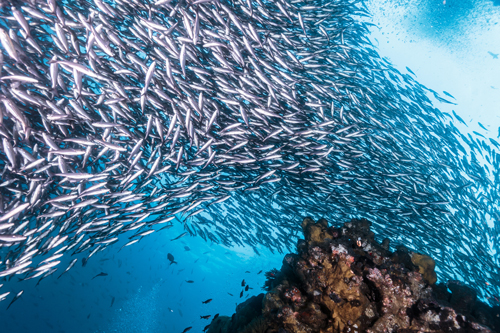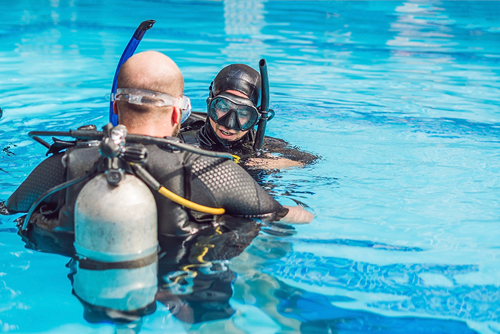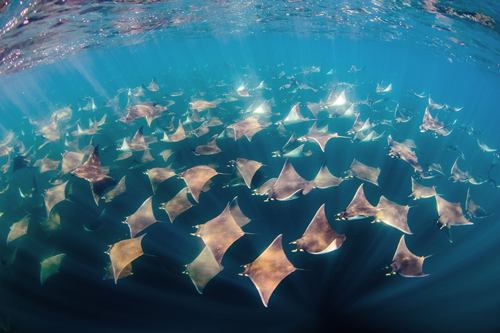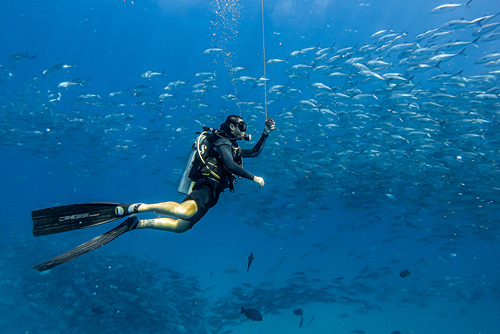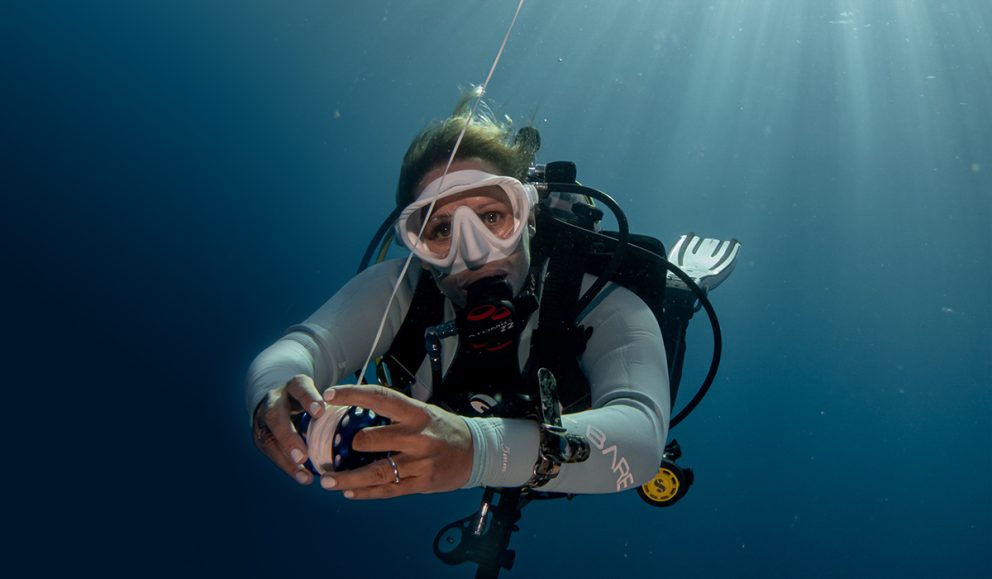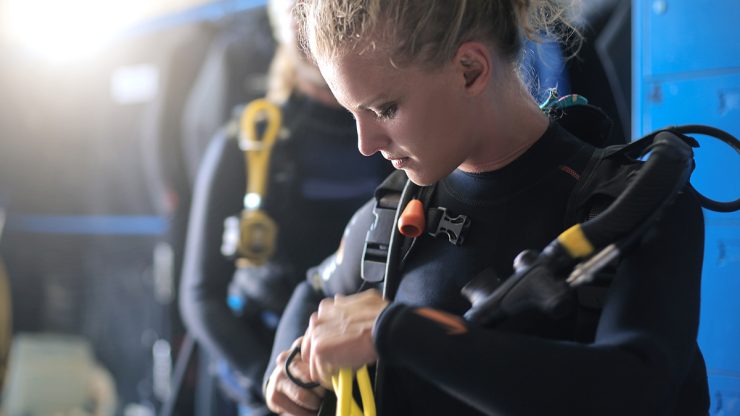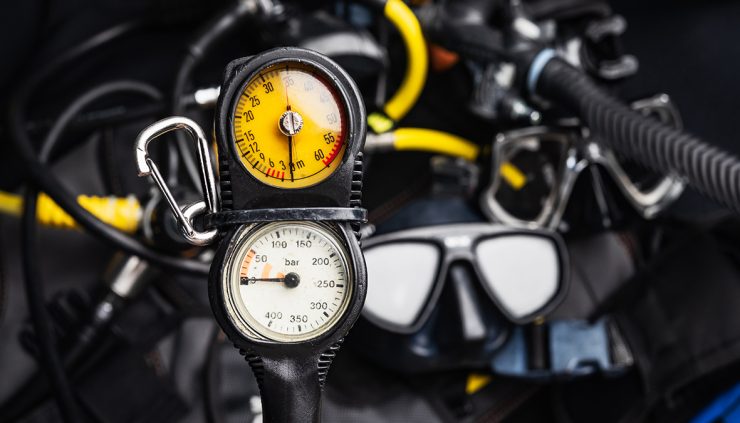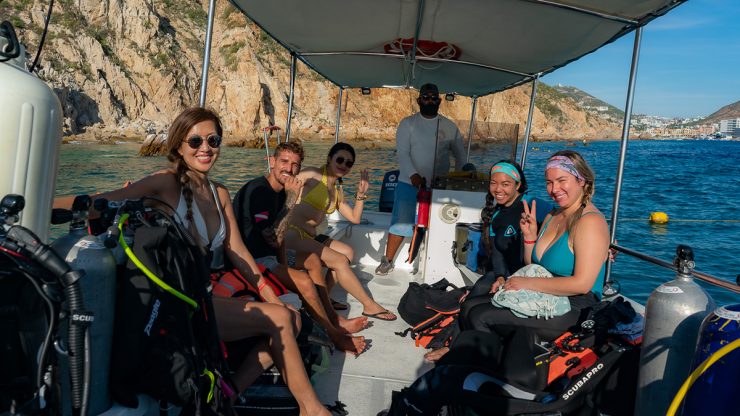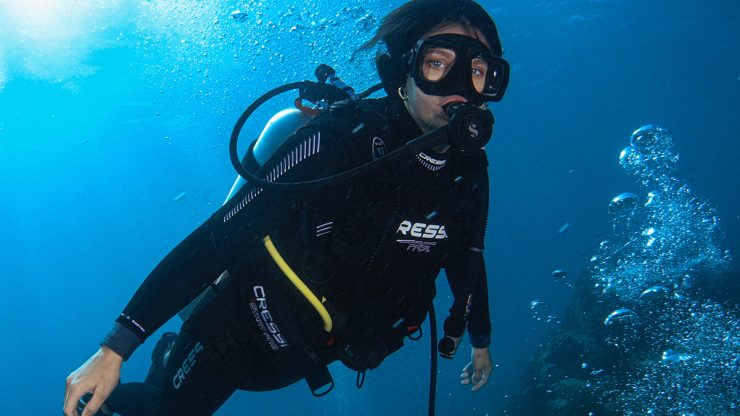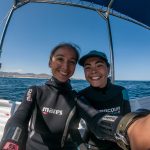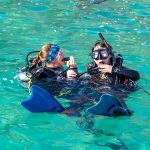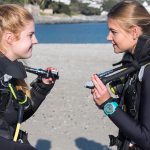Throughout my career as a scuba diving instructor, I have been asked many questions, either coming from new student divers or even from more experienced divers.
With over twenty years as part of the female diving community, I have picked up a good few scuba diving tips and tricks on the way, not only Female-specific.
Whether you’re exploring the abundant reefs of Cabo San Lucas or diving in exotic locations worldwide, these tips will ensure you have a safe and enjoyable experience.
Pre-Dive Tips
Plan and Prepare
- Connect with the Female Diving Community: Online resources like Facebook groups and forums created specifically for women divers offer valuable insights and tips. PADI Women’s Dive Day events also offer a chance to connect. Check the list below
- Choose a Dive Centre that Aligns with You: Look for a reputable dive school that prioritizes eco-friendly practices and fosters a gender-inclusive environment.
- Plan Trips Around Marine Life: Research the types of marine life you’d love to encounter and choose a travel time that coincides. At Cabo Private Guide, we understand the unique needs and considerations for female divers, feel free to join our dive trip dedicated to women.
- Secure the Essentials: Purchase scuba diving travel insurance for peace of mind, like DAN or Dive Assure, and create a comprehensive packing list to ensure you have everything you need.
- Prep your Gear: Thoroughly inspect your scuba equipment beforehand and don’t hesitate to ask your dive shop questions about maintenance or for gear recommendations.
Pro Tip: Sports gear luggage is cheaper than regular baggage on most airlines so opt for that if you can.
Sharpen Your Scuba Skills
- Refresh Your Skills: If you last dived a while ago or feel unsure, consider a scuba refresher course to boost your confidence. Review hand signals and emergency procedures to ensure effective underwater communication and preparedness.
- Know Your Limits: Do not push beyond your training and experience level.
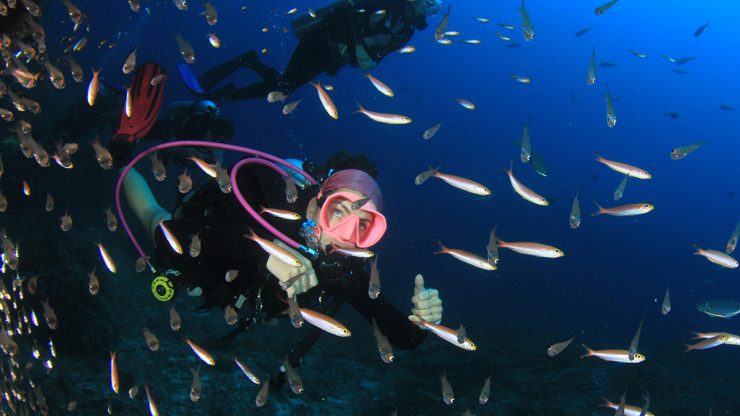
Physical and Mental Preparation
- Understand how diving affects your body: Historically little research was conducted on women! . More and more science is being released via establishments like Divers Alert Network, so keep up to date, especially on how diving will affect you at different ages .
- Time of the Month: Having your period shouldn’t stop you from diving, and it definitely doesn’t attract sharks! Menstrual cups offer a convenient, safe, and eco-friendly option compared to tampons. If experiencing severe cramps or discomfort, it could be best to postpone your dive.
- Get a Good Night’s Sleep: Being tired can often make you colder when in the water. Be sure to get to bed early to acclimatize after travel before your dive.
- Alcohol Consumption: Excessive alcohol intake can impair judgment and negatively impact diving safety, increasing the risk of DCS and Narcosis. Better go for a soft drink the night before.
- Prioritize Health and Wellness: Maintain a healthy lifestyle with regular exercise, a balanced diet, and adequate hydration. Women should pay particular attention to hydration levels due to hormonal fluctuations.
- Mental Preparation: Cultivate a positive mindset before your dive. Deep breathing, meditation or just looking out at the horizon while thinking about your upcoming dive can make your experience more relaxing.
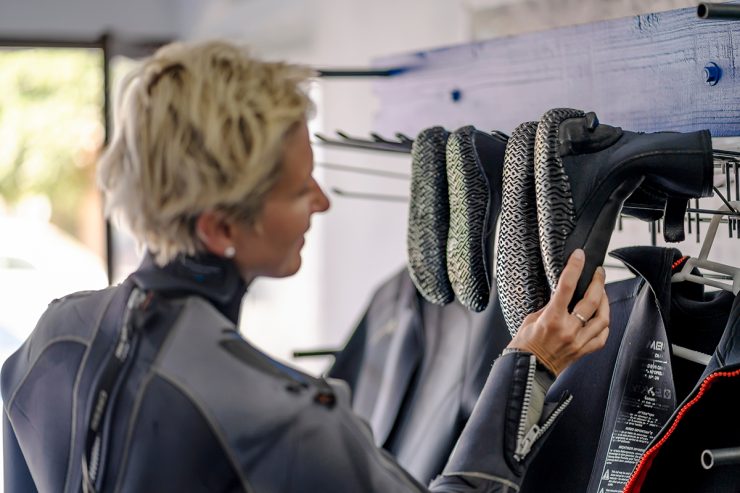
Equipment and Gear Preparation
- Choose the Right Gear: Select a wetsuit appropriate for the temperature and ensure it fits snugly to prevent heat loss. Women-specific wetsuits offer superior comfort and fit. Also consider purchasing dive gear designed specifically for women, such as BCDs, masks, and fins, for better comfort and performance. Try tying bikini strings in front to prevent them from getting caught in the wetsuit zipper.
- Get Weighted Correctly: Work with your dive guide to determine the correct weight distribution for your body type. Women divers may need a different weight distribution than men. women tend to have floaty feet, so you may wish to use a weight belt instead of weight pockets to bring the lower half of your body down. If you use a thick wetsuit and buoyant boots, positively buoyant fins, this may make your feet floaty more.
Pro Tip: Try converse sneakers and negatively buoyant fins if you have floaty legs and you have to wear a thick suit.
- Avoid Awkward Public Changing: Use a towel poncho or changing robe as a portable dressing room to avoid the problematic public knicker change. Go for string bikini bottoms for easy removal under shorts on the boat.
- Tame Your Hair: Prevent hair tangles and discomfort by using dive hoods, bandanas, and fabric mask strap covers to avoid surfacing with a bird’s nest. If you have long hair embrace your inner Disney princess and use the Jasmine hairstyle. Tie hair bands at regular intervals along a ponytail to minimize it getting into your first stage. Also, run some coconut oil through your hair beforehand for extra protection from salt and knotting.
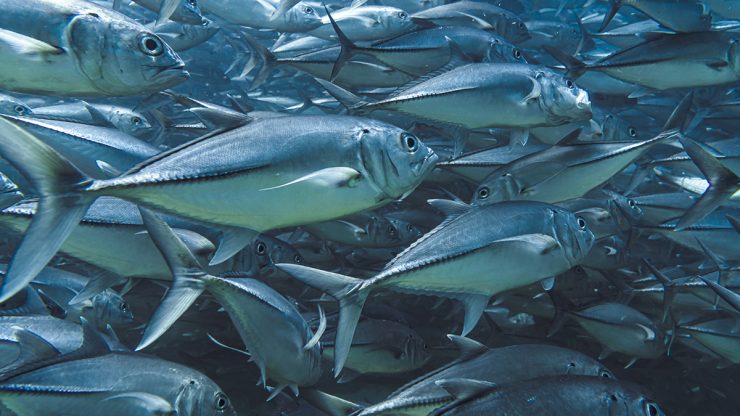
During Dive Tips
Dive Boat Etiquette and Preparation
- Always Prioritize Safety: Check weather conditions before diving to avoid hazardous situations. Familiarize yourself with the dive site to plan accordingly and always dive within your training limits. It’s also smart to know the location of the nearest recompression chamber. Enhance your safety and enhance your experience by hiring a local dive guide to take you around the site.
- Time Management: Arrive early to not rush and hold up the group. Being late can cause pre-dive anxiety. Also, be sure to gear up quickly when it is time to keep the day flowing smoothly.
- Organized Equipment: Bring only essential gear and keep your belongings tidy away from walkways and heavily used areas
- Mask comfort: Prevent mask fogging by using biodegradable dish soap or a bit of spit.
Pro Tip: If your mask gets tighter as you descend, breathe out your nose to release the pressure.
- Pay Attention: During the briefing, stop everything you are doing and pay close attention to the staff and the captain.
- Thorough Equipment Check: Conduct a detailed buddy check to ensure all equipment is functioning correctly.
- Be Respectful to Staff: If there is an issue with the service e.g. faulty, politely inform a member of staff away from other customers. Raising issues publicly that are easily fixed can instill anxiety in other divers and stress staff.
- Speak Up: Don’t hesitate to ask your questions or speak up if something doesn’t feel right, even if the boat is full of people who seem intimidating, odds are most of them have similar questions or worries.
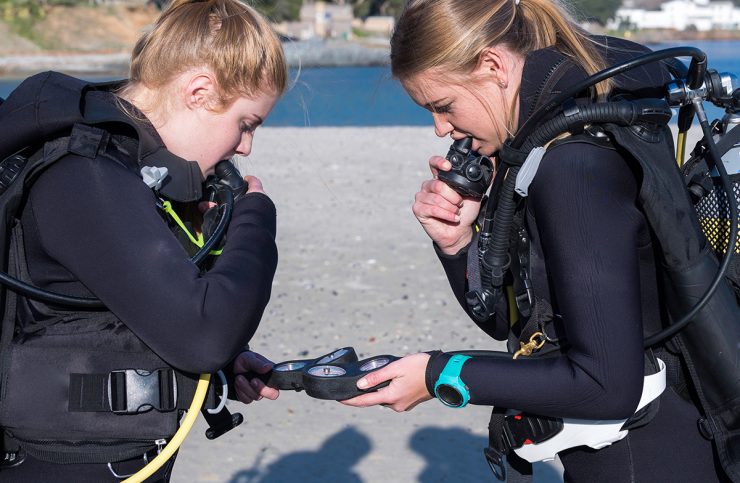
Underwater Safety and Awareness
- Buddy System: Establish effective communication with your buddy using hand signals and maintain close proximity to your dive buddy at all times.
- Air Management: Move slowly and efficiently to prolong dive time and reduce fatigue while continuously monitoring your air supply. Be sure to not hold your breath at the top OR the bottom of the breath to avoid dizziness when you surface.
Pro Tip: Master frog kicking early to maximise efficiency and avoid stirring up sediment or accidentally touching the sea floor.
- Self-Awareness: Avoid rapid changes of depth and be sure not to bump into everyone underwater.
- Navigation Skills: Familiarize yourself with navigation techniques to prevent getting lost.
- Eco-Friendly Practices: Only ever use reef-safe sunscreen, even if there is no coral in the region you are diving in. Do the same with hair products, and makeup to protect the marine ecosystem.
Pro Tip: Avoid standard dish soap when cleaning your mask and only use biodegradable solutions (spit works just fine!)
- Marine Life Respect: The ocean is a museum, not a theme park! Admire from afar and under no circumstances should you touch, chase, or aggravate marine life.
- Leave No Trace: Minimize your environmental impact by reducing plastic use and properly disposing of waste. Do one better and pick up plastic on the beach or participate in cleanup dives.
- Responsible Photography: Be sure to master your buoyancy before starting any underwater photography to avoid smashing into coral or disturbing marine species.
- Streamline Your Gear: Secure all equipment in a streamlined fashion to prevent damage to the reef.
Preventing Decompression Sickness and Ear Issues
- The Ascent: Maintain a slow and steady ascent rate to avoid DCS and always conduct safety stops to allow nitrogen degassing.
- Dive Computer Usage: Always use a dive computer to monitor dive profiles and no deco time.
- Post-Dive Don’ts: Certain activities after diving have the potential to induce DCS. This includes heavy exercise, deep tissue massage, hikes at altitude, and even sexy time.
- Ear Care: Make sure to equalize often even if you don’t feel like you need to as to avoid discomfort and potential ear injuries like reverse squeeze.
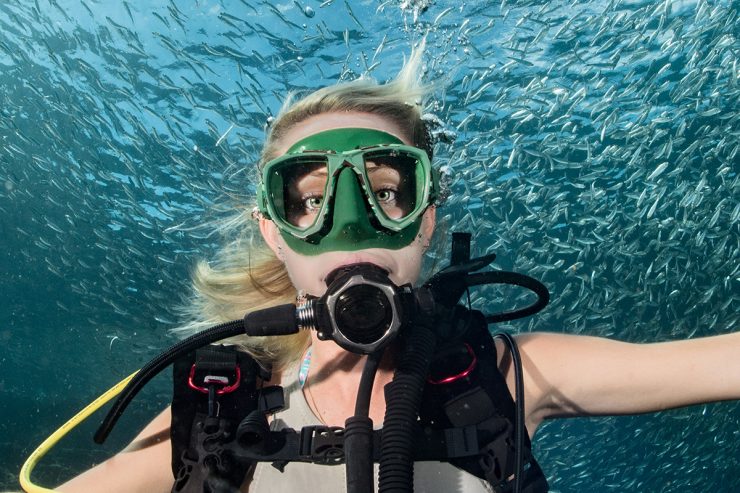
Post-Dive Tips
Prioritize Warmth and Recovery
- Dry Off Fast: Pack dry clothes to change into after your dive to warm up faster and avoid excessive sun exposure. Use long sleeves for extra sun protection.
- Hydration and Rest: Continue to drink plenty of water to replenish fluids lost during the dive and avoid alcohol as it can slow recovery.
- Flying After Diving: Flying or reaching altitudes immediately after a dive is a huge no-go. Most dive computers give you a no-fly time but the general rule is to wait 12-18 hours.
Note: Tec dives have an absolute minimum of 24 hours of no-fly time
Equipment Care and Post-Dive Habits
- Gear Maintenance: Rinse all your equipment thoroughly in the correct water baths to remove salt and debris and store your equipment in a cool, dry place away from direct sunlight.
Pro Tip: Make sure your gear is fully dry before you fly home. Wet gear is much heavier so avoid baggage surcharges.
- Inspect and Maintain: Carefully inspect your gear for any damage or wear. If you are unsure do ask your dive professionals.
- Log Your Dive: Log the dive on the day to avoid the build-up of unlogged dives resulting in a long admin task for future you. Some further qualifications have a minimum logged diver requirement so it’s a good idea.
- Gratitude and Appreciation: Show your appreciation by tipping your dive guide and boat crew. They are often up before the sun and stay behind late so you can have a fun and safe day!
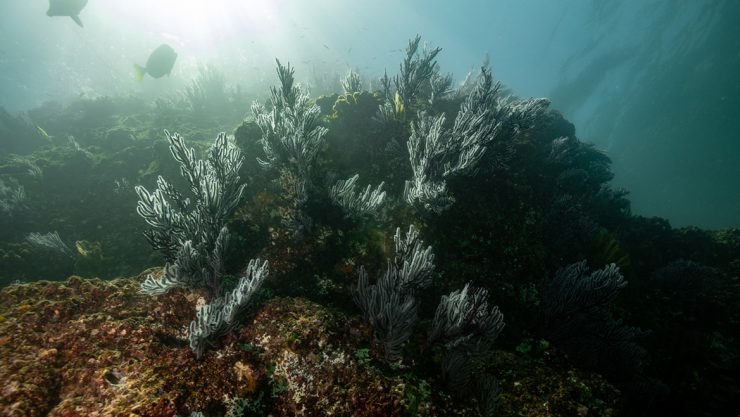
Continuous Learning and Future Planning
- Dive Debrief and Review: Analyse your dive computer data and debrief your dive with your guide, asking questions to enhance your knowledge.
- Keep improving your diving skills: Ask to your dive guide if they noticed room for improvement and tips for your next dive.
- Reflection and Learning: Take time to reflect on your dive experience. Talk about all the awesome stuff you witnessed with the other diver and dive team, to learn more about the marine life you encounter.
- Plan your next dive: Ask to your guide or dive buddy where you should go diving next ? They might share great underwater experience and helpful tips to help you think about where you want to dive next!
- Share with other: Talk about it ! On social media or with your friends, family or back at work. It will inspire them for their next diving adventure.
Female Diver Communities List
Join and engage with female diver group or communities like Scuba Mar Maids or Black Girls Dive Foundation. These women scuba diving groups offer support, tips, and opportunities to connect with other women who share your passion for diving.
Remember, diving is not just about exploring the underwater world; it’s also about enjoying the experience, sharing his passion, and being mindful of the environment. Happy diving!
Female scuba diver groups:
- Scuba Mar Maids
https://marhostedtrips.com/
https://www.facebook.com/groups/scuba.mar.maids/ - Los Cabos, Female Dive Community & Travel group
https://caboprivateguide.com/women-divers - Girl that scuba
https://www.girlsthatscuba.com/ - Facebook group “Scuba Women”
https://www.facebook.com/groups/230567124264338/ - Forum “ScubaBoard”
https://scubaboard.com/community/forums/womens-community-forums.90/ - PADI Womens Dive Day
https://www.padi.com/women - Solo Female Travelers
https://www.facebook.com/groups/solofemaletravelers/ - Black Girls Dive Foundation
https://blackgirlsdivefoundation.org/ - Facebook group “Female scuba gear Buy & Sell”
https://m.facebook.com/groups/1674589529321687


